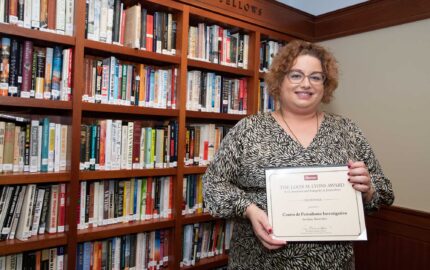Professor Doug Melton’s work for the Harvard Stem Cell Institute hasn’t always made him popular. He fought with the Bush administration over federal funding for his research, argued with religious fundamentalists over “family values” and “human dignity,” and at one point had a full-time security guard stationed in his lab because of bomb threats. These groups object to the fact that the human embryonic stem cells Melton and his team work on are derived from fertilized human eggs that could have potentially become human beings. Because those stem cells can become any kind of cell in the human body, they could also offer a way to replenish the cells that naturally die as our bodies age, or a possible cure for degenerative diseases like Alzheimer’s, Parkinson’s, amyotrophic lateral sclerosis (ALS), or —Melton’s specialty – diabetes.
Melton developed an interest in biology as a child, watching tadpoles develop into frogs in his native Illinois, and he began focusing on the prospects for using stem cells to cure diabetes after both of his children were diagnosed with the disease. When Melton spoke at Lippmann House in March, he spoke about the lack of strong science coverage in journalism. “I think there’s a public appetite for that,” he said. “What I don’t think there is, are many journalists who feel comfortable enough about science to write it in a way that the public can understand.” Melton argued that the Boston Globe has a unique opportunity, perhaps even an obligation, to cover science: “I don’t understand why [new Boston Globe owner] John Henry doesn’t say, ‘I own a newspaper in the world’s best city for science and technology, so I’m going to hire five of you and just send you to MIT and BU and Harvard and just go hear about these neat stories.'”
Melton acknowledged that the pace of scientific advances doesn’t match the pace of news reporting. His research team spent nearly 12 years creating insulin-producing cells, and they are still working on ways to protect those cells from the immune system attack that causes diabetes. “If I have one good idea a year, that’s a very good year,” Melton said. “Think about these life changes in decades, not in years, not in months, and certainly not in the daily news cycle.”


